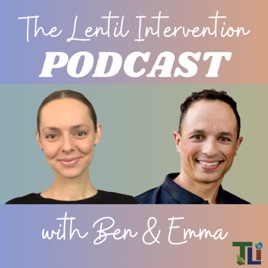
Advertise on podcast: The Lentil Intervention Podcast
Rating
5 from
Country
This podcast has
125 episodes
Language
Publisher
Explicit
No
Date created
2020/03/29
Average duration
59 min.
Release period
19 days
Description
The climate and health crises are two of the most pressing issues of our time. Change needs to occur, and sooner rather than later. Join your hosts, Ben Eitelberg and Emma Strutt, for conversations about people and planet. Find more details at www.thelentilintervention.org
Social media
Check The Lentil Intervention Podcast social media presence
Podcast episodes
Check latest episodes from The Lentil Intervention Podcast podcast
Dr Neal Haddaway - Storytelling To Start Conversations Of Science
2024/02/17
Dr Neal Haddaway is a photojournalist and environmental photographer whose work highlights the damaging impacts of capitalism and unchecked economic growth. With a PhD in environmental science and a 20-year career in environmental research and academia, Neal boldly chose to transition his career to photography fuelled by a desire to inspire others visually and reconnect with his passion for environmental conservation.
Neal makes a strong argument for the importance of storytelling in science communication. Through his work, he aims to bridge the gap between science and public perception, recognising the significance of compelling narratives in driving positive change. Here we discuss his poignant photojournalism projects and publications, and the mental health toll on those working in environmental academia, and much more.
While many of the topics we cover are quite heavy, they are important to be aware of. Neal encourages us all not to look away, but rather to keep learning, keep broadening our understandings and keep engaging in discussions with others. Knowledge is power and serves as our armour against misinformation. It provides us with the tools to challenge falsehoods and build a better society and future for both people and the planet.
In this episode, we discuss:
Neal’s background and passion for the environmentNeal’s motivation for pivoting to photography after 20 years in academiaCommunicating science via photographyPersuasion and the importance of storytellingMental health risks associated with climate researchProject 'Hope?' And how to grieve for the planetClimate scientists and the pressure to be perfectBuilding systems of support for environmental scientistsClimate anxiety as a Western conceptEnvironmental crises due to our current economic, political and social systemsThe true cost of our food - the story of the salmon and the tomatoCoal Scars – The long-term landscape trauma of our obsession with coalHow we can be more effective advocates for the planetTo view all the links to the websites and documents, visit the show notes on our website. Don't forget to subscribe to this podcast, leave us a review and share this episode with your friends and family.
Please support our work and enable us to deliver more content by buying us a coffee.
Follow us on Instagram, Facebook, and LinkedIn.
more
Max Romey - Art And Film To Connect People To The Planet
2024/01/28
And we’re back! Welcome to Season 5 of The Lentil Intervention Podcast. We are thrilled to be bringing you more insightful discussions, inspiring stories and scientific snapshots this year, and we are certainly kicking things off with a bang with our first guest, Max Romey.
Max is a phenomenal artist, filmmaker, producer, educator, trail runner and environmental advocate based in Anchorage, Alaska. Max uses his unique blend of watercolours and videography to highlight the complexities of environmental problems impacting both local and global communities.
We learn about Max’s background and inspiring outlook on life, as well as discuss his latest works which focus on the once pristine wilderness of Katmai National Park and Preserve. Unfortunately, even with its remoteness, the world’s rubbish problem has come knocking on Katmai’s shores. Even though the debris on Katmai might come from a world away, when it comes to ocean plastics we are all in the same boat, so this conversation with Max only serves to underscore the need for global action – no matter where we are located, we’ve all got a role to play.
In this episode, we discuss:
Max’s background and love of paintingRetracing his grandmother’s travels and artworkCommunicating climate and environmental science through artImportant considerations for impactful filmmaking and storytellingMax’s relationship with many of the world’s top trail runnersKatmai National Park and its sizeable marine debris problemMax’s previous film No Lost Shoes and his upcoming release Footprints on KatmaiThe ocean’s oxygen factories (phytoplankton) and concerns with microplasticsInspiring behaviour change while living in an imperfect worldMaking a change by starting at homeTo view all the links to the websites and documents, visit the show notes on our website. Don't forget to subscribe to this podcast, leave us a review and share this episode with your friends and family.
Please support our work and enable us to deliver more content by buying us a coffee.
Follow us on Instagram, Facebook, and LinkedIn.
more
Dr Mike Joy - Science-Based Climate Action
2023/12/17
We’ve reached the Season 4 finale of The Lentil Intervention podcast!
In our last episode for 2023, we sit down with podcast favourite Dr Mike Joy to recap the pressing environmental and climate concerns that have defined the past year. We also have a frank discussion about the necessary actions that can result in a better future for all. From climate change to degrowth, Dr Joy provides valuable insights and expertise that sheds light on the challenges our planet is currently facing, and he discusses concepts and principles that can help us transition towards a more sustainable future.
In a special segment, we address listener questions about effective environmental activism, where Mike lends his perspective on the actionable steps we can all take to make a meaningful impact in the fight against climate change and environmental disasters.
As we wrap up Season 4, we want to express our deepest gratitude to our incredible listeners for joining us again this year. Your support fuels our passion for environmental and health advocacy and knowledge-sharing. We look forward to coming back for Season 5, where we will continue to explore new health and environment topics and amplify the voices of those inspiring positive change. To everyone in the TLI community, we wish you a safe and happy end of year, and we’ll be back - just after a little break.
In this episode, we cover:
Mike’s research and achievements in the past yearThe carbon cycle, our net zero delusion and the impossibilities of offsettingThe problems with green growthUnderstanding the concept of energy return on invested (EROI)Our multiple crises (it’s not just climate!) as a symptom of overshootOur use of energy and the inevitability of DegrowthA reality check on renewablesLack of environmental truth and reality in mainstream mediaDegrowth Aotearoa New ZealandAn update on the nitrate levels in New Zealand’s freshwaterDr Mike answers Listener questionsTaking action in 2024
Previous episodes:
Dr Mike Joy, Freshwater EcologistDr Mike Joy, Growth, Emissions and Our WaterwaysDr Mike Joy, Protecting Our Planet’s Life Support NetworksDr Mike Joy and The Rubbish Trip, Translating Science to Real-World Action
To view all the links to the websites and documents, visit the show notes on our website. Don't forget to subscribe to this podcast, leave us a review and share this episode with your friends and family.
Please support our work and enable us to deliver more content by buying us a coffee.
Follow us on Instagram, Facebook, and LinkedIn.
more
Professor Ilan Noy - Economics of Disasters and Climate Change
2023/12/03
Professor Ilan Noy is the Chair in Economics of Disasters and Climate Change - Te Āwhionukurangi, at Te Herenga Waka – Victoria University of Wellington. Ilan’s research and teaching focus on the economic aspects of natural hazards, disasters, climate change, and other related topics in environmental, development, and international economics. Ilan is also the founding Editor-in-Chief of the SpringerNature journal Economics of Disasters and Climate Change. Having previously worked at the University of Hawai’i and consulting for the World Bank, Asian Development Bank, and Inter-American Development Bank (to name a few!), Ilan brings a wealth of knowledge to this conversation.
Professor Noy recently co-authored an article, published in Nature Communications, assessing the global cost of extreme weather attributable to climate change. Their findings revealed that extreme events attributable to climate change cost the world US$143 billion per year, yet the loss and damage funding agreement arrived at from COP27 will only offer an average of US$10 billion a year – a drop in the bucket compared to what’s truly needed. Ilan unpacks the paper’s findings and much more in our conversation.
In this episode, we discuss:
Ilan’s personal and professional backgroundThe diversity of topics that fall under the umbrella of the economics of disasters and climate changeThe driving force behind establishing the Journal Economics of Disasters and Climate ChangeLack of consideration towards climate change in the field of economicsThe deficiencies of current assessment methods regarding the financial costs of climate changeConsidering the wide-ranging damage costs associated with climate change, as well as the costs associated with the loss of human lifeThe need to reduce vulnerabilities and exposure to avoid increased costs associated with anthropogenic extreme weather eventsHow economists attach a dollar value to human lifeWhich countries and regions of the world feel the impact mostThe lack of economist engagement with the IPCCChanging the dialogue in future COPsPrioritising financial support where it’s truly needed
To view all the links to the websites and documents, visit the show notes on our website. Don't forget to subscribe to this podcast, leave us a review and share this episode with your friends and family.
Please support our work and enable us to deliver more content by buying us a coffee.
Follow us on Instagram, Facebook, and LinkedIn.
more
Associate Professor Luke Kelly - Fire And Biodiversity
2023/11/05
Dr Luke Kelly is an Associate Professor in Quantitative Ecology at the University of Melbourne, leading teams both locally and internationally. Luke studies the dynamics of plant and animal populations, educates about biodiversity and human well-being, and collaborates with diverse stakeholders to prevent species extinction.
With expertise in ecological and evolutionary dynamics, Luke recently led a team of researchers that assessed how human activities are reshaping patterns of fire across the globe. Some of the findings were quite surprising, with our planet now burning in unexpected ways. In this conversation we talk shop on fire fundamentals, key fire changes both globally and locally, and how we can coexist with fires in the Anthropocene, by moving forward and working together to generate ideas and solutions.
In this episode, we discuss:
Luke’s scientific background and current research workThe work of biodynamos, the Biodiversity Dynamics Research GroupFire as fundamental to human civilisation and the earth's systemsBenefits and risks of fire for biodiversity and threatened speciesLuke’s recent paper Understanding Fire Regimes for a Better AnthropoceneSurprising findings regarding global fire activityFire regime changes in Australia, including an upward trend in mega-firesKey anthropogenic drivers of fire regime changesThe consequences for humans, flora, and fauna due to changing fire regimes in AustraliaHow we best move forward while living with fire in the Anthropocene, including practical recommendations for people in high-risk areasThe importance of a proactive approach, rather than a reactive responseHow fire can help us achieve the UN’s Sustainable Development Goals
To view all the links to the websites and documents, visit the show notes on our website. Don't forget to subscribe to this podcast, leave us a review and share this episode with your friends and family.
Please support our work and enable us to deliver more content by buying us a coffee.Follow us on Instagram, Facebook, and LinkedIn.
more
Peri Zee - Degrowth For Connected Communities
2023/10/22
Peri Zee is an urban planner and sustainable transport professional working towards more inclusive and connected communities that are supported to live good lives within planetary boundaries. Peri is head of mobility at Pollock Consulting Limited and was previously the climate action pathway lead and healthy city design lead at Hutt City Council.
Peri covers some essential topics in this episode, discussing the concepts of planetary boundaries and degrowth, and the importance of public transport in connecting our communities while providing a pathway to a more sustainable future. Peri leaves us with some inspiring words about becoming our own changemakers – the more people that see the big picture and act on it, the greater the transformation will be, and there is a role for everyone.
In this episode, we discuss:
Peri’s background and passion for a sustainable futureThe important concept of planetary boundariesHow a degrowth approach could help us live within safe planetary boundariesThe fallacy of green growthAcknowledging the importance of technology while adhering to degrowth principlesAchieving an equitable transition to degrowthNew Zealand’s public transport crisisBuilding community trust to ensure more successful public transport projects in futureThe importance of bike and footpaths, and public transport access in urban areasThe sprawling cities of Australia and New Zealand vs the 15-minute city concept ‘Keep cup smugness’ vs advocating for effective change individually and as a community
To view all the links to the websites and documents, visit the show notes on our website. Don't forget to subscribe to this podcast, leave us a review and share this episode with your friends and family.
Please support our work and enable us to deliver more content by buying us a coffee.
Follow us on Instagram, Facebook, and LinkedIn.
more
Damian Hall - Environmentalism Through Ultra Trail Running
2023/10/08
In this episode, we chat with running legend Damian Hall, a record-breaking ultramarathon runner and athletics coach who has represented Great Britain and continues to achieve competitive results in some of the world’s toughest and gruelling races.
Damian is an experienced journalist and author of several books, including the award-nominated We Can’t Run Away From This, which examines the impact of running on our climate and ecological emergency. Damian is also a passionate (and very busy!) climate activist, a member of several environmental organisations and initiatives, and co-founder of The Green Runners.
Damian inspires any climate-conscious runner and prompts us to seriously consider our kit, food, and travel. Moreover, Damian helps us all identify - whether we are athletes or not - simple changes we can make to our behaviour for a cleaner, greener world and future.
In this episode, we discuss:
Damian’s background and achievements in ultramarathon runningWhat sparked Damian’s environmental activismDamian’s latest book We Can’t Run Away From ThisThe surprising ecological impact of runningPositive environmental initiatives within the trail-running spaceThe Game Changer Sponsorship Pledge and walking your climate talk as an athleteEmbracing imperfect climate advocacy and the inevitability of being a climate hypocriteThe sustainability of large-scale sporting eventsThe power of sports and athletes to influence and change societyThe Green Runners; A running community making changes for a fitter planetEstablishing Into Ultra to reduce the barriers to participation in ultrarunningThe importance of partaking in climate action for outdoor enthusiasts
To view all the links to the websites and documents, visit the show notes on our website. Don't forget to subscribe to this podcast, leave us a review and share this episode with your friends and family.
Please support our work and enable us to deliver more content by buying us a coffee.
Follow us on Instagram, Facebook, and LinkedIn.
more
Dr Simon Eassom: Food Frontier - The Future of Alternative Proteins
2023/09/24
In this episode, we discuss alternative protein with Dr Simon Eassom, Executive Director at Food Frontier, Australia and New Zealand’s independent think tank on alternative proteins.
Simon is an experienced leader, business executive, and strategic thinker and has had a distinguished career as a university professor with a Ph.D. in applied ethics and a background in health and nutrition as Head of a large university School of Physical Education and Sport Science. As a freelance investigative journalist, Simon was a regular media commentator on numerous issues, including the political economy of food and the public presentation of information and advice on diet and health. He has been an in-demand public speaker on technology and change and currently serves on the Board of the Australian Council of Professions as its Chief Futurist.
In this conversation, Simon brings his passion and knowledge to help us understand alternative proteins and their role in delivering a sustainable protein supply that supports people and the planet.
In this episode, we discuss:
Simon’s fascinating background and his work as Executive Director at Food FrontierReceptivity to alternative proteins in heavy meat-eating countries such as Australia and New Zealand and the target markets of the plant-based meat sectorAlternative protein options, technological innovations, and challenges in meeting consumer demandsAlternative proteins and health considerations – potential pros, cons, and misconceptionsThe current environmental impact of our global food system and the expected benefits of reducing meat consumptionAnimal welfare concerns associated with modern-day animal farmingFeeding the world’s population; alternative proteins as a food security solutionAlternative Proteins and Asia - market insights for Australian and New Zealand companies looking to AsiaFood labelling for plant-based productsDriving market change and shifting eating behaviours; Food Frontier’s Theory of ChangeFood Frontier’s upcoming AltProteins 23 Conference
To view all the links to the websites and documents, visit the show notes on our website. Don't forget to subscribe to this podcast, leave us a review and share this episode with your friends and family.
Please support our work and enable us to deliver more content by buying us a coffee.
Follow us on Instagram, Facebook, and LinkedIn.
more
Emma Wingrove - The Clean Up Crew
2023/09/10
Emma Wingrove is a reuse specialist, passionate about bringing New Zealand to the forefront of sustainability and climate change solutions. In 2014, while undertaking her university degree, Emma established The Clean Up Crew Aotearoa, after identifying the hideously overlooked problem of litter and neglected beaches of the beautiful North Shore of Auckland. Thinking that someone should really address the problem, she realised that someone could be her.
From humble beginnings, the Clean up Crew continues to grow. Emma inspires hope for a better future by proving that one person can make a difference. Anybody can see a problem and start working towards fixing it - solutions don’t need vast acts of grandeur, just passion and determination!
In this episode, we discuss:
Emma’s background from environmental science to zero wasteLocalised NZ and Auckland’s Zero Waste HubsThe scale of the plastic waste problem in New ZealandThe source of beach rubbish found on New Zealand beachesEmma’s establishment of The Clean Up Crew AotearoaCommonly found rubbish items littering Auckland’s shorelines, and how it gets thereAdvocacy and education work of The Clean Up CrewHow to support The Clean Up Crew and get involved in their regular clean-upsTop tips for minimising personal waste
To view all the links to the websites and documents, visit the show notes on our website. Don't forget to subscribe to this podcast, leave us a review and share this episode with your friends and family.
Please support our work and enable us to deliver more content by buying us a coffee.
Follow us on Instagram, Facebook, and LinkedIn.
more
Dr Kate Sievert - Meat And Sustainable Food Systems
2023/08/27
Dr Kate Sievert is a Research Fellow at GLOBE at Deakin University with a special interest in power and politics with regard to food systems and their relationship with population and planetary health. Kate is also a co-founder of Healthy Food Systems Australia, an advocacy group dedicated to bettering food systems for all Australians and the land.
Dr Sievert was responsible for leading The World Health Organisation’s recent Information Brief titled Red and Processed Meat in the Context of Health and the Environment: Many Shades of Red and Green, which synthesized the current evidence on the role of red and processed meat production and consumption in health and environmental outcomes, and in different social and political contexts.
In this episode, we discuss this recent publication in addition to some of Kate’s other fascinating work regarding transparency within the food industry, corporate power, and political influence. We cover a lot of ground in this conversation, so you may want to listen through it twice. However, one thing that Kate makes clear is that in transitioning to a sustainable food system we need to think more deeply than economics and consider concepts that are best for humans, animals, and the planet.
In this episode, we discuss:
Kate’s background and the path that led to her current researchKate’s work at the Global Centre for Preventative Health (GLOBE)Red and processed meat production and consumption trendsShifting meat consumption patterns – influences on consumer behaviourMeat consumption and nutritional adequacy versus potential health risksZoonotic disease and antimicrobial resistance risksFood safety risks and food-borne diseases associated with animal-sourced foodsKey environmental concerns associated with red and processed meatsPracticalities of feeding the world with regenerative farming methodsPotential alternatives to red and processed meats in the dietThe consideration of sustainability in food-based dietary guidelinesThe power of the food industry, links to government, and consequent impact on policymakingMedia framing and meat consumption – who has a beef with reducing red and processed meat consumptionChanges needed to achieve sustainable food systems
To view all the links to the websites and documents, visit the show notes on our website. Don't forget to subscribe to this podcast, leave us a review and share this episode with your friends and family.
Please support our work and enable us to deliver more content by buying us a coffee.
Follow us on Instagram, Facebook, and LinkedIn.
more
Deirdre Kent - Fixing The Economic System
2023/08/13
Deirdre Kent is a long-time environmental activist with a background in teaching, campaigning, and lobbying and is also a prolific author, having written six books. Deirdre has been involved in numerous research and political campaigning efforts and has established various organisations such as Transition Town Ōtaki, the Ōtaki Timebank and The New Economics Party.
Being involved in green economics for many years, Deirdre has most recently co-founded Degrowth Aotearoa New Zealand and talks extensively about various economic concepts, currency design, money and the environment on her website. Not only that, Deirdre is an ardent supporter of a whole food plant-based diet for the associated environmental and health benefits and speaks passionately on this subject.
In this episode, we discuss:
Deirdre’s diverse backgroundSpearheading Transition Town Ōtaki and The Ōtaki TimebankThe Degrowth movement in New Zealand and establishing Degrowth AotearoaChampioning change towards degrowth economic principlesTradable energy quotas vs Emission trading schemesPotential benefits of Tradable Energy QuotasThe importance of considering dietary choices as an environmentalistThe dairy industry in New ZealandTips for effective lobbying and the importance of visual mediums
To view all the links to the websites and documents, visit the show notes on our website. Don't forget to subscribe to this podcast, leave us a review and share this episode with your friends and family.
Please support our work and enable us to deliver more content by buying us a coffee.
Follow us on Instagram, Facebook, and LinkedIn.
more
Dr Jenn Lavers & Jennell Reynolds - Esperance Tjlatjraak Native Title Aboriginal Corporation
2023/07/30
Dr Jennifer Lavers is an Indigenous scientist and seabirds and plastic pollution expert, working as a Healthy Country Plan Coordinator for the Esperance Tjaltjraak Native Title Aboriginal Corporation (ETNTAC) and as the coordinator of Adrift Lab.
Jennell Reynolds is a community engagement officer and previous Tjaltjraak Ranger, also with ETNTAC. Kepa Kurl Wudjari Peoples' ancestral lands span over 30,000 square kilometres of Southern Western Australia, encompassing Esperance and beyond. Kepa Kurl Wudjari people are descended from seven apical ancestors, of which Jennell is recognised as a direct descendant, having the rights and responsibility for the practice of Wudjari Nyungar culture and for passing it on to future generations.
Here we learn about the critical work of ETNTAC and how they preserve culture and care for country in this modern age of science and technology. Australia’s First Nations people are the original scientists, land managers, engineers, ecologists and so much more, drawing on 50,000 years’ worth of knowledge. In the face of our current climate and environmental emergencies, we learn the importance of respecting and honouring the past in guiding us towards a better future.
In this episode, we discuss:
Jenn’s background and work with Adrift Lab and the Esperance Tjaltjraak Native Title Aboriginal Corporation (ETNTAC)Jennell’s work with ETNTAC as a community engagement officer and rangerImportance and purpose of Registered Native Title Bodies Corporations (RNTBCs)Cultural history, significance, and unique beauty of Esperance area/Wudjari Nyungar countryHonouring 50,000 years’ worth of Indigenous knowledge and scienceHow ETNTAC blends modern technology and research with knowledge from Australia’s first scientistsThe pros and cons of technology for preserving cultureThe need for long-lasting relationships with Aboriginal and Torres Strait Islander organisations within science, industry and governmentsETNTAC’s statement regarding the Aboriginal Cultural Heritage Act 2021What we can all learn from 50,000 years of caring for countryReconnection to place and country – when we belong to something we take care of it.
To view all the links to the websites and documents, visit the show notes on our website. Don't forget to subscribe to this podcast, leave us a review and share this episode with your friends and family.
Please support our work and enable us to deliver more content by buying us a coffee.
Follow us on Instagram, Facebook, and LinkedIn.
more
Podcast reviews
Read The Lentil Intervention Podcast podcast reviews
Podcast sponsorship advertising
Start advertising on The Lentil Intervention Podcast & sponsor relevant audience podcasts
You may also like these earth sciences Podcasts
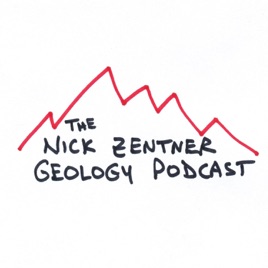
4.9
474
100
The Nick Zentner Geology Podcast
Nick Zentner
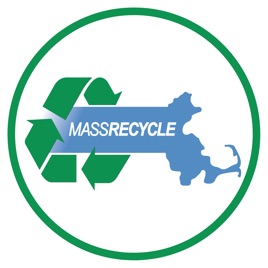
5
2
45
MassRecycle Podcast
MassRecycle
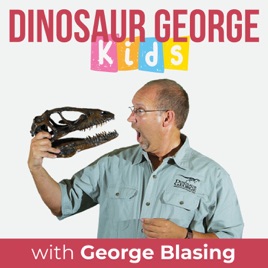
4.6
259
98
Dinosaur George Kids - A Show for Kids Who Love Dinosaurs
Dinosaur George
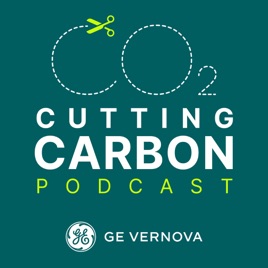
4.9
41
59
Cutting Carbon
GE Gas Power
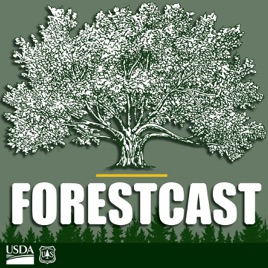
4.9
69
27
Forestcast
USDA Forest Service

4.9
376
221
Spacepod
Carrie Nugent
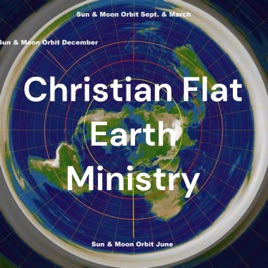
3.2
9
41
Christian Flat Earth Ministry
James Edwards
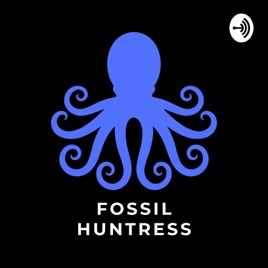
5
1
104
Fossil Huntress — Palaeo Sommelier
Fossil Huntress
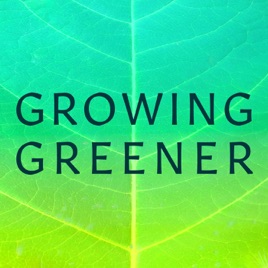
4.8
64
238
Growing Greener
Tom Christopher
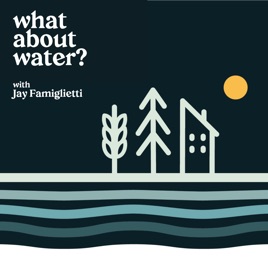
4.9
31
65
What About Water? with Jay Famiglietti
Global Institute for Water Security




